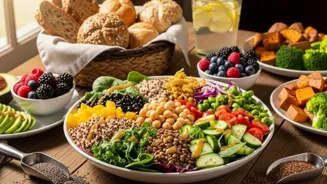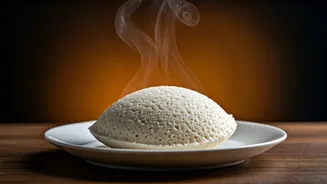Many people cut out rice from their meals when trying to lose weight, believing it will add extra kilos. At the same time, some rely heavily on coffee, thinking it is always good for health. But these
common assumptions might not be completely true. What you eat every day can either help or harm you, depending on how you consume it.
Dr. Saurabh Sethi, a gastroenterologist trained at Stanford and Harvard, shared a list of surprising yet science-backed facts about common foods. His insights highlight how small changes in the way we eat can make a big difference to gut health and overall well-being.
View this post on Instagram
Bananas are best when eaten slightly green
According to Dr. Sethi, bananas are much healthier when they are slightly green rather than overripe. “They are rich in resistant starch, a prebiotic that feeds your good gut bacteria without spiking your blood sugar,” he explains. In contrast, when bananas turn brown and soft, most of their starch converts into sugar.
Coffee can help your gut but may also cause problems
For many, coffee is the first thing they reach for in the morning. It not only wakes you up but also helps with gut motility and supports good microbes. However, Dr. Sethi warns against overconsumption. Drinking too much coffee or having it on an empty stomach can sometimes cause acidity, reflux, anxiety, or loose stools.
Spices are more than just flavour
We often think of spices only as taste enhancers, but they can actually act like natural medicine. Turmeric, ginger, and fennel, for example, have anti-inflammatory properties and can protect the gut lining. “I take all three daily,” Dr. Sethi shares, underlining their powerful role in maintaining gut health.
Plain yogurt is healthier than probiotic drinks
Supermarkets today are filled with probiotic drinks that promise better gut health. But according to Dr. Sethi, plain yogurt and other naturally fermented foods are far superior. “Real fermented foods like plain yogurt, kefir, or sauerkraut offer diverse strains, without the added sugar that feeds bad bacteria,” he explains.
White rice is not always harmful
Rice has gained a bad reputation in recent years, especially among those on weight loss journeys. But Dr. Sethi points out that white rice, when cooled after cooking, develops resistant starch. This acts like fibre and supports gut health. “Cooled rice forms resistant starch, which acts like fibre and supports your microbiome. It’s why leftover rice is often easier to digest,” he says.
Berries are excellent for your gut
If you are looking for foods that protect your gut and reduce stress on the body, berries are the way to go. Blueberries, raspberries, and pomegranates can fight oxidative stress and nourish healthy gut bacteria, often doing a better job than probiotic supplements.
Seeds are a simple way to add more fibre
Fibre plays a crucial role in digestion, and chia seeds or basil seeds are great sources. “They absorb water, form a gel in your gut, and support smooth digestion. Great for regularity and feeding beneficial microbes,” says Dr. Sethi. Adding a spoonful of these seeds to your diet daily can make digestion easier.
Beyond these food facts, Dr. Sethi also reminds people that lifestyle habits affect digestion just as much as food choices. Eating in a hurry, being stressed, or not following a routine can lead to bloating and disturb the balance of gut bacteria. He emphasises that the gut thrives on consistency, regular meals, good sleep, and a stable routine are just as important as what is on your plate.












